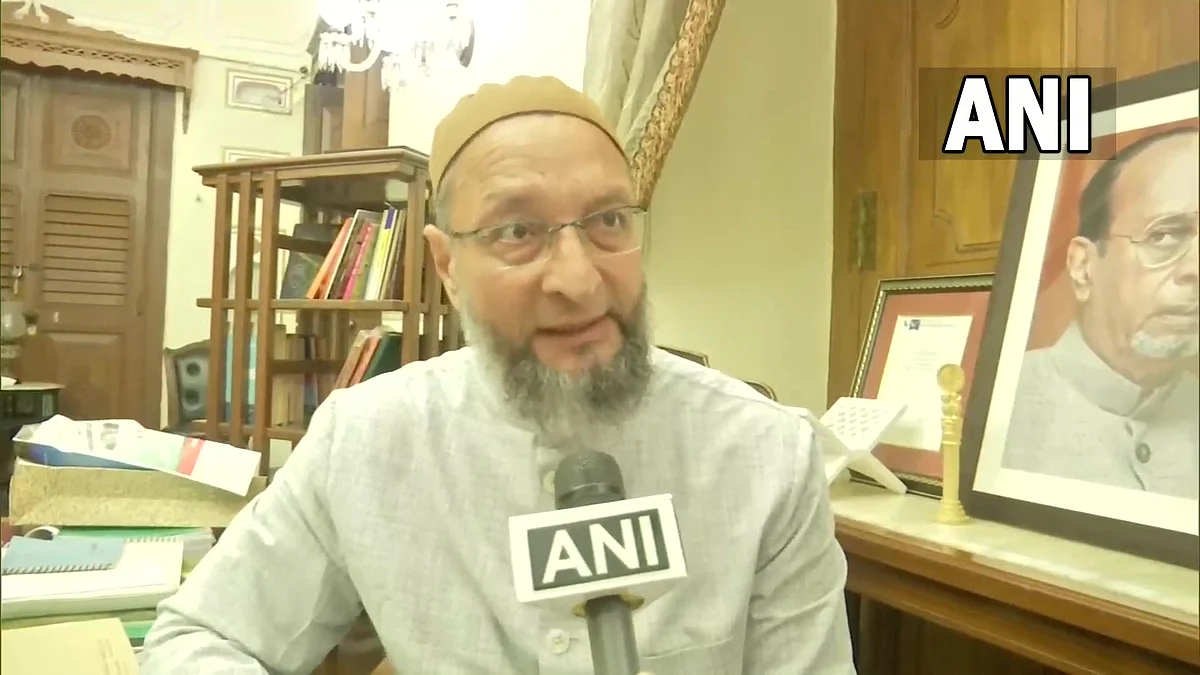A day after Uttar Pradesh Chief Minister Yogi Adityanath expressed concern over population rise of a particular community, AIMIM chief Asaduddin Siddiqui on Tuesday said that the desired fertility rate would be achieved by 2026-2030 in UP adding that it's Muslims who are using most contraceptives.
Yesterday, on the occasion of World Population Day, Adityanath said population control programmes must not lead to an "imbalance" by focusing on "native" residents while the growth rate of some community remains high, a possible reference to Muslims.
Asaduddin Owaisi's remarks came along the lines of UP CM's remarks and asked if Muslims are not natives of India.
"If we see the reality, natives are only tribals and Dravidian people," he added.
Further, Owaisi said, "Union Health minister Mansukh Mandaviya had said that no law is needed in the country for population control." "It's Muslims who're using most contraceptives," he said.
"Total fertility rate which was 2.6 in 2016 is now 2.3 and India's demographic dividend is best among all countries," the AIMIM chief added.
Notably, the UP law commission had submitted a draft Uttar Pradesh Population (Control, Stabilization and Welfare) Bill, 2021 to the state's BJP government in the last few months of Adityanath's previous term in office.
The proposed legislation incentivised families following a two-child norm, and some critics suggested that it targeted the state's Muslim community. The government, however, rejected the charge.
Adityanath said Uttar Pradesh, the most populous state in the country, could cross the 25-crore population mark in the coming years.
He said when the state tries to bring down maternal and child deaths due to anaemia at par with the national level, it faces the problem of these death rates being high "in a particular community." Adityanath said population growth for a state or a country is a challenge if there aren't enough resources.
He said population control programmes must proceed successfully, "but a situation of population imbalance should also not happen".
(To receive our E-paper on whatsapp daily, please click here. To receive it on Telegram, please click here. We permit sharing of the paper's PDF on WhatsApp and other social media platforms.)





